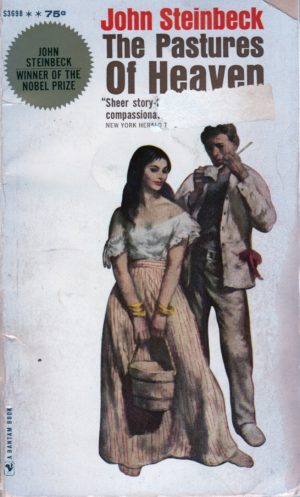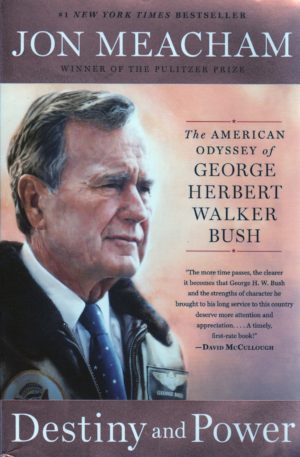
I came upon this book, described as one of Steinbeck’s earliest novels, somewhere along the line. That it turned out to be a collection of short stories linked by both character and place (Las Pasturas del Cielo: the Pastures of Heaven) in California detracted a bit from my enjoyment of the stories. I was hoping for an early version of the depth of character, plot, and place displayed in Grapes of Wrath or Garden of Eden. That’s not this book. But then, what books are?
After completing the read, the stories are mostly unremarkable but entertaining. I’ve little memory of the characters or storylines or predicaments in this work with two notable exceptions.
Two Hispanic sisters, Rosa and Maria, in hopes of selling their fine tortillas to the gringo settlers of the valley, end up offering additional “encouragement” to their male customers. The story’s tastefully done, humorous, and reveals just enough of the untoward to cause the reader to ponder:
Rosa sat like a rock and sucked on her candy bar. Suddenly, she glared into Maria’s eyes. “Today,” she said solemnly, “today I gave myself to a customer.” Maria sobbed… ” “Do not make a mistake,” Rosa continued. “I did not take money. The man had eaten three enchiladas-three
The other memorable tale is piece enveloped in sorrow. Richard Whiteside, an orphaned young man with dreams of creating a palace; a showpiece of a farm in the valley to be filled with a loving wife and children; is the story’s protagonist in the early going. His only heir, son John, also has a solitary child, William. John dreams of young Bill doing what neither Richard or John were able to do: stock the Whiteside estate with oodles of children; progeny born and raised within the Pastures of Heaven to ensure the family legacy. But Bill’s wife is a city girl and they depart, leaving John and his invalid wife Willa alone on the farm. An idea transpires, an idea that calls to mind the fiery end of Drageda depicted with such deftness in The Thorn Birds. John believes he can re-invigorate the farm by burning off brush to enliven the soil. But before the final, tragic scene, there’s a touching exchange between husband and wife that displays Steinbeck’s uniquely simple power as a writer:
One Night he awakened to hear a light rain whispering on the slates and splashing softly in the garden.
“Are you awake, Willa?” he asked quietly.
“Of course.”
It’s the first rain. I wanted you to hear it.”
I was awake when it started…You missed the best part, the gusty part…
“Well, it won’t last long. It’s just a little first rain to wash off the dust.”
All in all, the stories are well crafted, if not independently memorable.
4 stars out of 5.

I was reading this tome, nearing the conclusion, when President George H.W. Bush died. Meacham, a frequent guest on “Morning Joe” on MSNBC- not as a political talking head but as a well-respected biographer and historian-does a thorough and thoroughly engaging job of pointing out why Bush 41 has not, until his death, been honored as an American hero. I’ll be frank: I never liked Reagan’s economics; his willy-nilly tossing folks off Social Security Disability so that he could give his rich friends tax breaks. But you had to admire his foreign policy chops. And that’s really where H.W.’s story takes root.
President Reagan is often given sole credit for the fall of the Berlin Wall and the retreat of Soviet influence in Eastern Europe. There’s no question his tough persona played a part in that success. But it must also be remembered that throughout the dismantling of the Soviet empire in the late 1980s and early 1990s, H.W. was the Ambassador to the U.N., Vice President under Reagan, and finally, President in his own right. All of those positions, offices to which H.W. brought considerable patience and a steady handed diplomacy, were equally instrumental in the ultimate collapse of communism. While the Neo-cons and Reagan rattled swords, President Bush worked the back channels reassuring our allies and Gorbachev, who was in grave jeopardy of being ousted as the leader of his nation due to his desire to modernize the Soviet Union and give its citizenry economic and political freedom (through glasnost and perestroika). It was H.W.’s steadfastness and patience that ultimately allowed the world to benefit from the transformation of Eastern Europe and the independence of countless nations, including the Baltic states.
But there was more to H.W. than keen international political chops. At home, he rolled back the detrimental anti-environmentalism of his predecessor and in fact, expanded the Clean Air Act, instituted Rails for Trails, pushed hard for conservation of wetlands (not entirely altruistic as he was a duck hunter) through CRP, and championed the ADA.
Towards the end of this fascinating study of an underappreciated world leader, Meacham posits this:
His life was spent in the service of his nation, and his spirit of conciliation, common sense, and love of country will stand him in strong stead through the ebbs and flows of posterity’s judgment.
Indeed. After this week, perhaps we can conjure his spirit to come back and return dignity, sanity, and a sense of service to the Presidency.
5 stars out of 5. A masterful exposition of a man’s legacy and spirit.
Peace.
Mark


